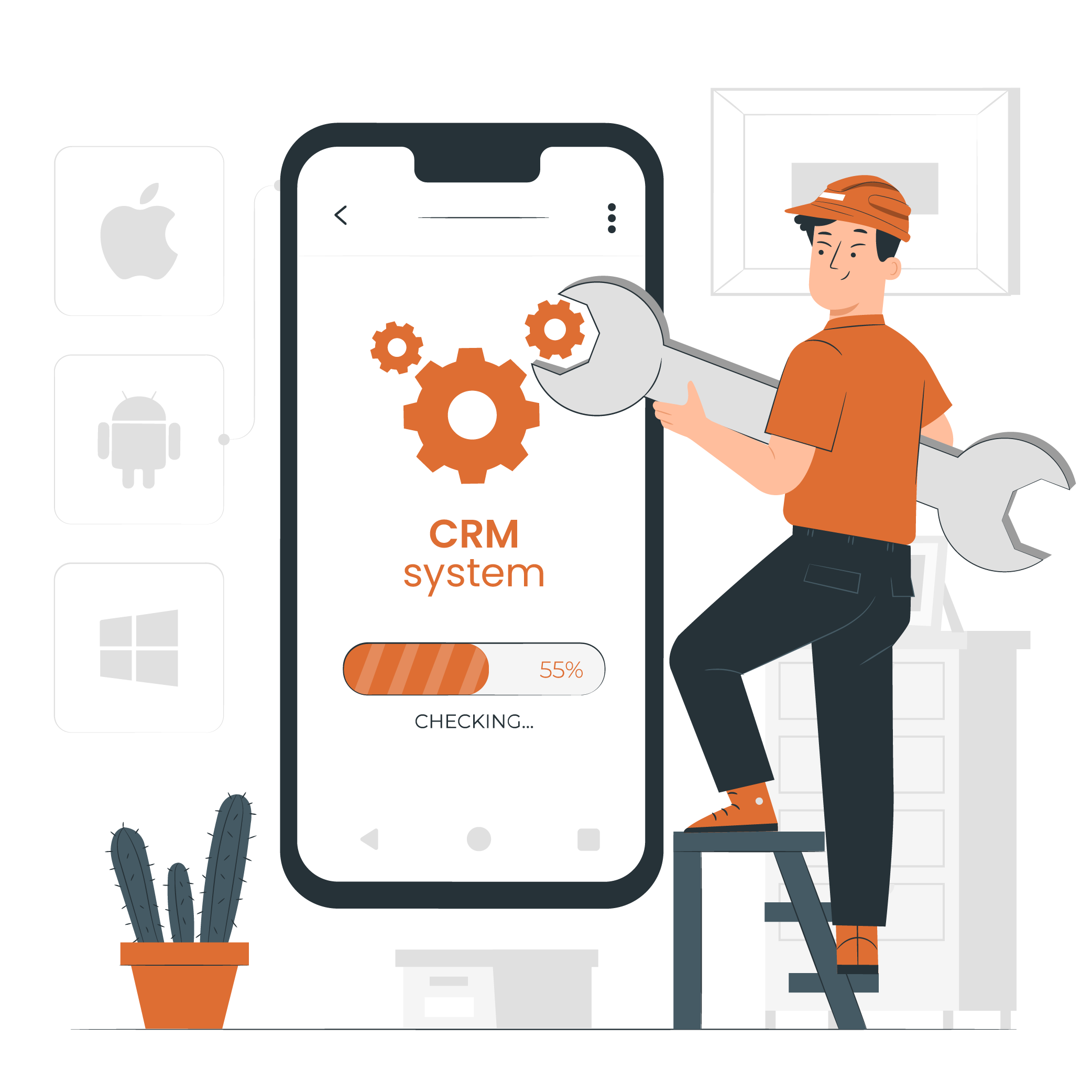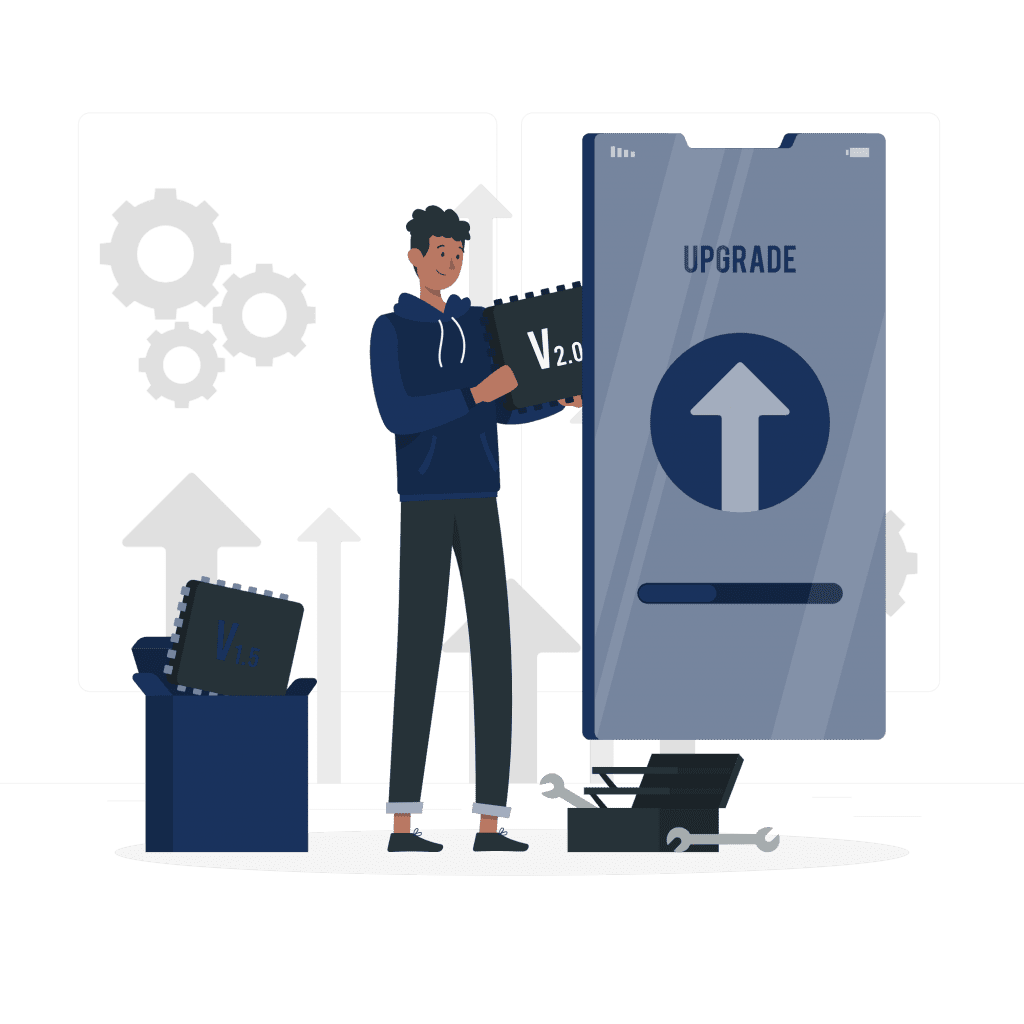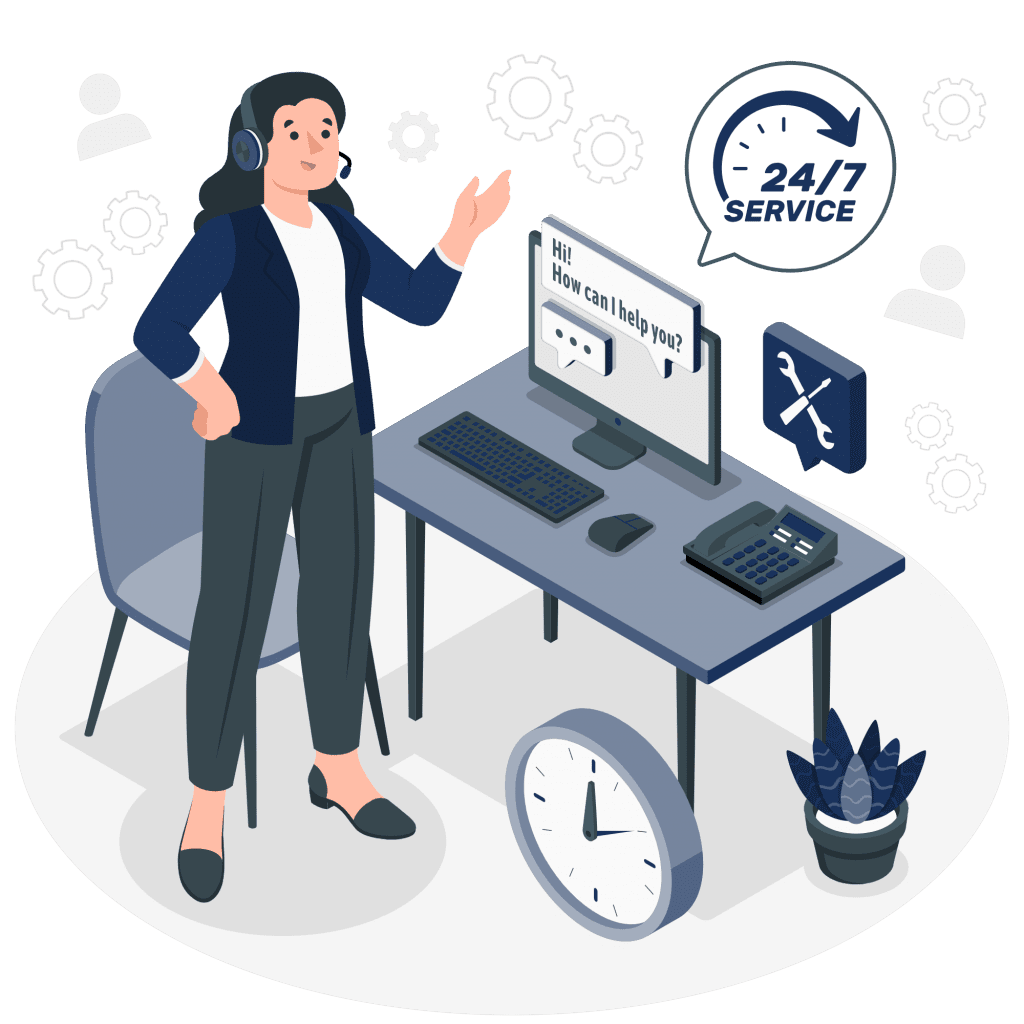Why buy and not build a CRM?

It is quite interesting to know that CRM is the fastest-growing software market today. As per the report from Grandview Research, CRM was a $14 billion industry in 2010 and is expected to reach $80 billion by 2025. That’s nearly a 600% increase.
These statistics clearly state the increasing popularity of CRM systems in recent years. More businesses realise the importance of an automated and efficient workflow; as a result, more than 91% of businesses that employ more than 100 people are now using CRM applications of some kind. (As per the Buyer Zone Research Report)
The education industry is utilising these CRM systems but at a modest rate. Based on LISTedTECH database numbers, the situation in education is not as rosy: only 41% of universities and colleges use a CRM system.
Multiple reasons are involved for this low adoption rate, such as lack of awareness, cost, technical challenges, resistance to change, etc. Additionally, some institutions continue to rely on Excel for managing their data, which, while familiar and accessible, can fall short in scaling with growing needs.
If we look deeper, a significant reason for this low adoption rate is also the confusion about whether to buy or build an in-house CRM system, considering the complexity of system implementation and the ever-changing use cases.
If you too had the same confusion, then this blog is your ideal read, as it talks comprehensively about all the key factors involved in buying and building a CRM and assists you in making the right choice.
5 points to consider while making the buying/building choice

A good CRM system can streamline your entire admissions process, automate tasks, and provide valuable insights into prospective students’ behaviour and preferences.
While building a custom CRM system from scratch may seem like a good option for some businesses, there are several reasons why buying an existing CRM system may be a better choice.
Cost and Time

Building a CRM system from scratch can be a time-consuming and expensive process. It requires a team of developers, designers, and project managers to work together and create a customised solution that meets the institute’s specific needs. This can take months or even years to complete and can cost hundreds of thousands of dollars
As per Capterra, 80% of respondents claim they implemented their CRM in 18 months or less.
Alarming Point: Your institute does not have an existing team of developers, designers, and project managers. So you need to hire one. Even if you are outsourcing this project, it comes with challenges such as finding the right software agency, ensuring that your data is secure, and overcoming the adoption hurdles to make effective use of the system.
On the other hand, buying an existing CRM system is much quicker and more cost-effective. There are many education-focused CRM systems on the market that offer a wide range of features and functionality at a lesser fraction of the cost of building a custom system. This can save your institute time and money, thereby allowing you to focus on other areas.
Relieving Point: The time required to choose the CRM system that suits your needs is much less than choosing the team to build one for you. Plus, you need not invest your capital in hiring and maintaining a whole new team.
Scalability

As the institute grows, so do its CRM needs. An inbuilt CRM system may not be able to keep up with these changing needs, as it may not have the flexibility to adapt to new processes or integrate with new technologies.
Alarming Point: You are not a tech company that builds and deploys the product on a regular basis. You will always have a limitation when it comes to the rapid evolution of product advancements. Also updating the existing system will affect the overall functionality of the product and may come up with an additional cost.
Buying an existing CRM system will offer your institute the scalability that you need to grow and adapt over time. A robust CRM system offers a wide range of features and integrations that can be added or removed as needed, making it easy for your institute to scale the CRM system as the needs change.
Relieving Point: You need not spend your time thinking about the new technological advancements that can make the system more efficient and user-friendly. Your system’s well-being will be taken care of.
Expertise

Building a CRM system from scratch requires a team of experts with a range of skills and expertise, including software development, user experience design, and project management. It can be exhausting for education institutes like yours to find and hire these experts, and even harder to ensure that they are working together effectively to create a high-quality product. Even if you think of relieving yourself from this exhaustion and go for another option of outsourcing the project, it comes with another pack of challenges such as finding the right software agency, ensuring data security, integration with the existing system (if any), timely updation, etc.
Alarming Point: Building a product comes with a lot of inherent risks, including the risk of delays, cost overruns, and technical issues. It is required to establish clear contingency plans and risk management strategies. This is not your expertise!
Buying an existing CRM system allows institutes to tap into the expertise of the CRM provider. The provider has already assembled a team of experts to build and maintain the CRM system and has invested significant resources into ensuring that the system is reliable, secure, and easy to use.
Relieving Point: Buying a product where everything has been taken care of means you are not required to go beyond your industry vision and expertise.
Support

When any business builds its own CRM system, it is responsible for providing all of the support needed to keep the system running smoothly. This is a significant burden, especially if a business like an educational institute is not equipped to handle technical issues or customer inquiries. Even if you go for external support it comes with great costs and untimely resolutions.
Alarming Point: Imagine if your system breaks down at any point in time; there will be no support to even tell you what’s gone wrong and control the damage on time.
One of the biggest benefits of buying an existing CRM system is the support that comes with it. Most CRM providers like ExtraaEdge offer a range of support options, including technical support, and training. This is especially valuable for educational institutes, as they do not have their own IT or customer service teams.
Reliving Point: You will always have someone to call up and discuss what has gone wrong, and the other side will have answers and solutions ready for you.
Integration

A CRM system is only as effective as its ability to integrate with other systems and tools that a business uses. Building a custom CRM system from scratch can make it difficult to integrate with other tools and systems, especially if those systems were not designed to work together.
Alarming Point: Different systems use different data formats, protocols, and standards, which can create compatibility issues. Without a skilled and expert team, system integration can be a very daunting task.
Buying an existing CRM system offers education institutes a wide range of integrations with other tools and systems, making it easier to share data, automate processes, and streamline the admissions process. This can save the institute time and effort and help them get the most value out of their CRM system.
Relieving point: As a booming education institute, you should be more concerned about your growth in terms of admissions rate and new program integrations than hovering over API docs. Buying a CRM provides you with this privilege.
Final Thoughts
While building a CRM system may seem like a cost-effective solution, it requires significant time, resources, and expertise. On the other hand, buying a CRM system offers a host of benefits, including ease of implementation, reliable customer support, and scalability.
By choosing to purchase a CRM system, institutes can focus on their core competencies, and leave the technology to the experts. Ultimately, investing in a high-quality CRM system will help your institute streamline the admissions processes, improve prospect engagements, and drive growth. So, before you decide to build your own CRM system, consider the benefits of buying a pre-built solution that can help you achieve your business goals faster and more efficiently.
Buying a robust CRM system like ExtraaEdge that focuses entirely on the education industry can save your institute’s time, and money, and offer scalability, expertise, support, and a wide range of integrations.


